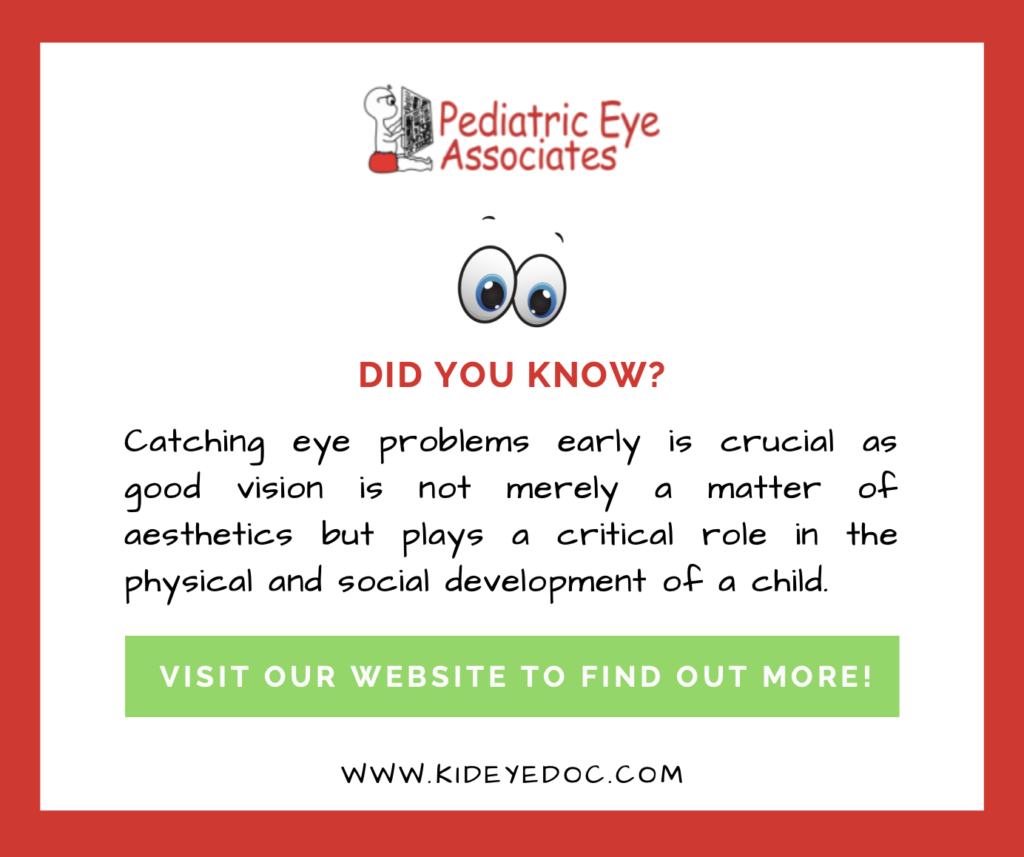A premature baby is a baby born before the 37th week of gestational age. As a normal pregnancy lasts 40 weeks, premature babies, or preemies, have less time to develop in the womb. This makes them more likely to have health complications or birth defects.
The US National Institute of Health acknowledges that children born preterm are at greater risk of ophthalmic conditions, including strabismus or retinopathy of prematurity (ROP) than children born at term. The experts note that premature birth is responsible for 35 percent of vision impairment cases as the final stages of vision development occur in the last few weeks of pregnancy. Accordingly, the risk of ocular abnormalities becomes one of the greatest fears for parents, as well as the physicians who care for preterm infants.
To prevent vision problems or its loss you should be aware of the risk and what you can do about it. Experts at Pediatric Eyes Associates assure you that routine ophthalmologic assessments in the early years can allow for appropriate and timely interventions.
Common ophthalmological problems associated with children born prematurely
Preterm birth can inflict multiple challenges on the developing visual system and may cause problems, such as:
Retinopathy of Prematurity (ROP)
Retinopathy of prematurity (ROP) is one of those eye diseases that occur as a consequence of the abnormal development of blood vessels. According to the National Eye Institute, ROP is most prevalent among babies born before the 31st week or at a very low weight. Its potential complications include nearsightedness, farsightedness, retina detachment, strabismus, amblyopia (lazy eye), glaucoma, or, at the worst, blindness.
Fortunately, our pediatric eye doctors in New Jersey reassure parents that, thanks to regular testing and monitoring, only a small minority of premature infants suffer the severe complications that lead to visual impairment. They always emphasize that early diagnosis, a successful and timely treatment plan, as well as scrupulous follow-up of our strabismic patients, can bring significant benefits. You can discuss options with our excellent child eye doctors to provide your newborn with the highest quality medical and surgical eye care.
Strabismus
Strabismus, or squint, is another common eye condition in children with a history of premature birth. A population-based study shows that it is present in 2 to 5 percent of preterm infants in the first years of their life. As noted, the lower the gestational age at birth and/or the birth weight, the higher the risk for developing crossed eyes.
This disease may appear when the nerves that cause eye movement are weak, or there’s a problem with the eye muscles. As a result, a child may suffer from abnormal binocular vision development, amblyopia, or irreversible vision loss if not detected and treated timely. It all makes strabismus a significant concern for parents and our pediatric eye doctors. We believe that squint is not only a cosmetic effect of misaligned eyes, but it also has an adverse effect on the psychosocial development of the child and, if untreated, may need surgical remedies.
If you would like to learn more about squint, check out our article about: What’s to know about Strabismus.
Looking for the highest quality child ophthalmologist near me?
With our clinic, you will feel comfortably provided with all possible options for eye disorder treatment without having to worry about limitations and risks. Our Pediatric Eye Associates is a place where our doctors,
- Amy Lambert, MD, a board-certified pediatric ophthalmologist and strabismus surgeon,
- Rachel Bloom, MD, also a board-certified and fellowship-trained pediatric ophthalmologist, offer a comprehensive scope of eye care for you and/or your child.
If you have any doubts or questions concerning your child’s vision Contact Us immediately. We will be happy to help!
The material contained on this site is for informational purposes only and DOES NOT CONSTITUTE THE PROVIDING OF MEDICAL ADVICE, and is not intended to be a substitute for independent professional medical judgment, advice, diagnosis, or treatment. Always seek the advice of your physician or other qualified healthcare providers with any questions or concerns you may have regarding your health.

